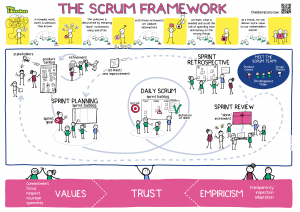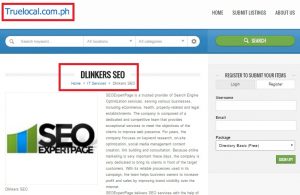By Tomas Chamorro-Premuzic and Becky Frankiewicz

Although human beings have hardly changed in 200,000 years of evolution, our relationship with work has undergone profound changes, even during the last century. Jobs have grown in complexity, careers have become less predictable, and talent has become multidimensional, harder to judge, find, and retain.
In the scope of just a few generations, we have transitioned from a world where most opportunities were constrained by people’s political capital (who you know, connections, social class), to one where first intellectual capital (what you know, hard skills, credentials), then psychological capital (who you are, personality, values, soft skills) have more of an impact on success.
Clearly, these changes have created new challenges for workers, as well as society. Regardless of skill level, workers are under pressure to develop new skills in order to remain employable in the face of growing global competition and the threat of AI and automation. Technological advances and innovations have not yet resulted in any clear productivity gains, and many people are working more to deliver similar levels of output. Disproportionate demand for rare skills continues to exacerbate economic inequality, while most salaries fail to keep up with inflation and the cost of living. If and when the pandemic finally ends, these new challenges for workers are more likely to intensify than disappear. And yet, there are some visible improvements, and much progress, around how we work.
Work in progress
For the vast majority of the global workforce, things are significantly better today than they were at the beginning of the 20th century. Compared to then, jobs are less physically demanding, less dangerous, less boring, more intellectual, and more likely to appeal to people’s interests and motivation. While there is much progress to be made in diversity and inclusion, organizations were less diverse and inclusive in the past.
Today, there is also much more choice when it comes to careers (though as we know more choice makes it harder for people to choose, often resulting in anxious career uncertainty). Still, by (February 23, 2022)’s standards, most of today’s career problems are #firstworldproblems. For example, 100 years ago it would have been very rare for someone to return home from work and respond to the “How was work today?” question with: “Not great. I didn’t really experience a sense of purpose, so perhaps I should quit.” Thirty years ago, it would have been rare for someone to leave their job because they were not allowed to work from home or bring their dog to the office.
All these improvements to working conditions mean that employers are more eager than ever to provide consumer-like experiences. They want to cater to workers’ unique psychological values and preferences and promise it all: meaningful, ethical, profitable, and intellectually stimulating careers, with more flexibility, freedom, and status. Employees are now in the driver’s seat, as they help shape company policies, including talent decisions and cultural norms, as well as pressure leaders on moral issues.
And yet, there is little indication that workers are generally happier, or even more satisfied with their jobs and careers. For example, engagement levels and job tenure have remained stagnant for years, and a growing number of workers decide to quit, not just their bosses, but employment altogether. In our view, the main factor explaining this gap between improved working conditions and worker satisfaction is that expectations have risen beyond actual working conditions. Today there is so much pressure on work and careers to fulfill people, that workers are bound to be disappointed.
Humans have always craved meaning and purpose but historically found these in many areas of life other than work: religion, philosophy, spirituality, sports, entertainment, hobbies, relationships, etc. Jobs were, for most of our history, just work. We aspire to them in order to make ends meet or set aside enough money to enjoy life (that thing we seem to have forgotten about).
As much as we are devoted advocates of work and big believers in the progress of human capital, we fear that work—as historically defined—may be overrated. Don’t lose heart though. There are some emerging trends that bridge the gap between what workers crave from work and what employers are beginning to offer. Here are some ways leaders can continue to reframe the way we approach work.
Create individual work plans
Corporate America knows how to do individualism. Companies have individual development plans for employees and create individual salary plans. In this new era, we also need individual work plans. The days of working as a “shift” of people or corporate headquarters expecting all employees by 8 a.m. just doesn’t fit the individual definition of flexibility today.
Yet the latest ManpowerGroup research found 100% remote work isn’t the first choice either. In fact, most people say their top priority when it comes to flexible work is the freedom to choose their own start and end times. We now need to look at disaggregating shifts and providing flexibility for previously standard hours. There is an advantage for employers as well. Shifts comprised of four or two hours as opposed to the traditional eight hours means more flexibility for employers in scheduling.
Upskill all
Every employee should have a skill development plan from the manufacturing line to the head office. The pandemic has revealed that our skills have value whether the workers are essential or executive. Workers seeking to improve skills also benefit employers. This does not need to be the higher-order type of upskilling often discussed in the media. Incremental, on-demand, and just-in-time can have more impact whether it’s for developing hard or soft skills.
Lean into purpose
Employees are now wise to the idea of pledges without progress, and they expect more. In our recent ManpowerGroup’s What Makes Workers Thrive survey, two out of three people want to work for organizations whose values they share. So, lean into your culture and your purpose, and let it define the strength of your stance on public and private policy.
There is mutual benefit in this approach. It allows you to deepen your employer brand in a way that is true to your values. We are beyond the days of values in a boardroom as employees now expect values and purpose to permeate the culture, so it’s felt over Zoom, on the shop floor, and in the hallways of headquarters.
See workers for their skills, not just job titles
Human beings are a compilation of experiences and education that creates unique, individual capabilities. For decades, human resources created jobs. Now we should be creating jobs around individuals. Their degree or prior job title is less important than their unique skills. The COVID crisis has taught us that a front desk supervisor at a hotel has the skills to be a call center manager. Skills transcend industries and titles are less relevant than core capabilities. Assess for the skills and human potential. This will unlock new pathways for workers and unlock new workers for corporate pathways.
Measure performance over presenteeism
Many of us can likely recall trying to be at our desk by a certain time to beat the boss or staying until you’re one of the last people to leave. Without clear productivity metrics, being seen equaled performance. However, this environment created inequity across the workplace with those who left for families or for aging parents or simply for a hobby or personal commitment. As the world went remote, the idea of being present equaling performance also came into question.
There is also a growing divide between roles where management can measure impact in pieces and parts produced and roles where work is valued but don’t have the same clear metrics. It’s time for employee scorecards that are set at all levels to demonstrate contributions beyond physical presence. This is a win for the employee as their true value becomes clear. The organization can then choose which areas to invest in for return.
Work has changed, workers have changed, and now it’s time for a new, more holistic view of workers’ contribution and employers’ benefit. As we evolve, there can be gains for all.
Tomas Chamorro-Premuzic, PhD, is the chief talent scientist at ManpowerGroup and a professor of Business Psychology at Columbia University and University College London. He is the author of Why Do So Many Incompetent Men Become Leaders? And How to Fix It.
Becky Frankiewicz is the president of ManpowerGroup North America and a labor market expert. Prior to that, she led one of PepsiCo’s largest subsidiaries, Quaker Foods North America, and was named one of Fast Company’s Most Creative People. Find her on Twitter @beckyfrankly.
(32)
Report Post







